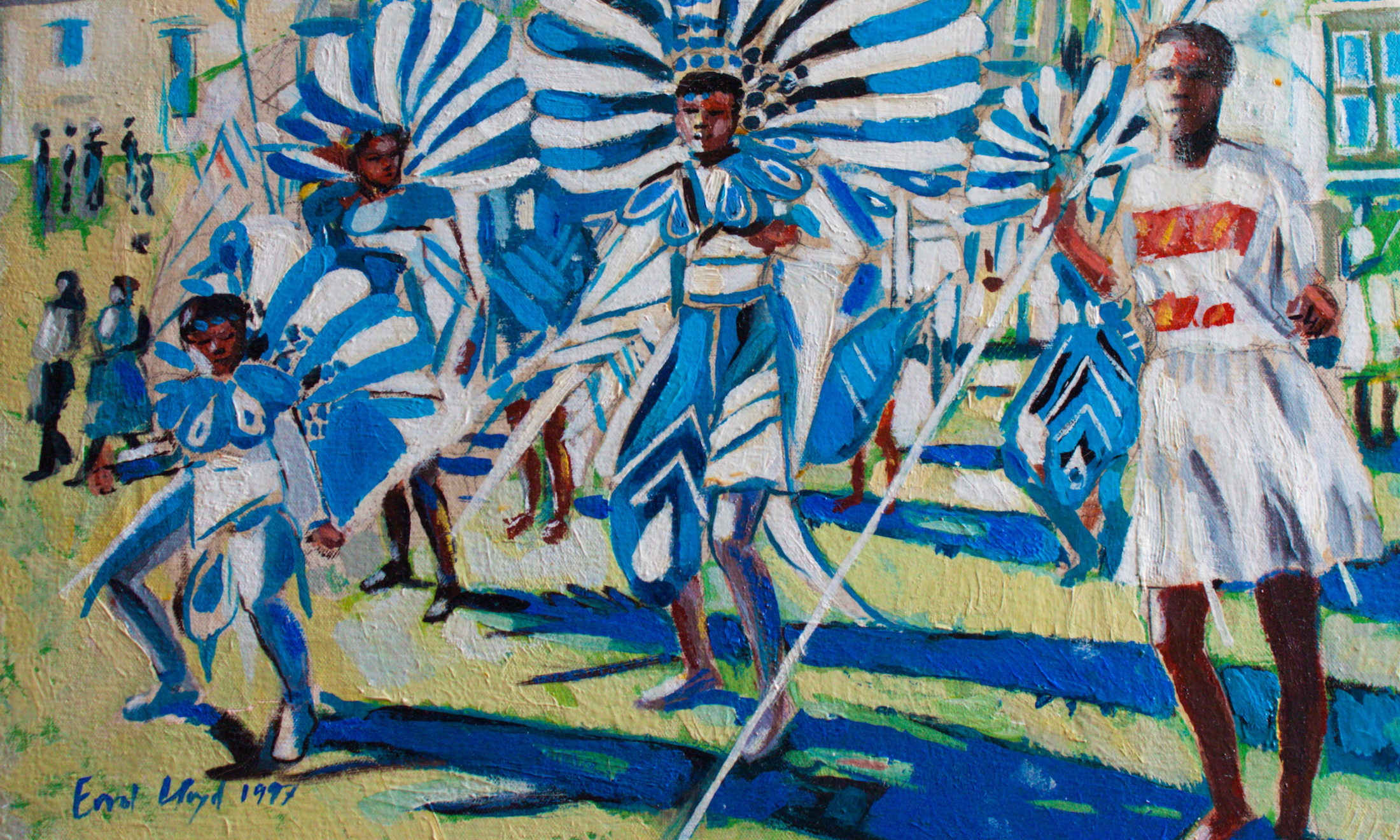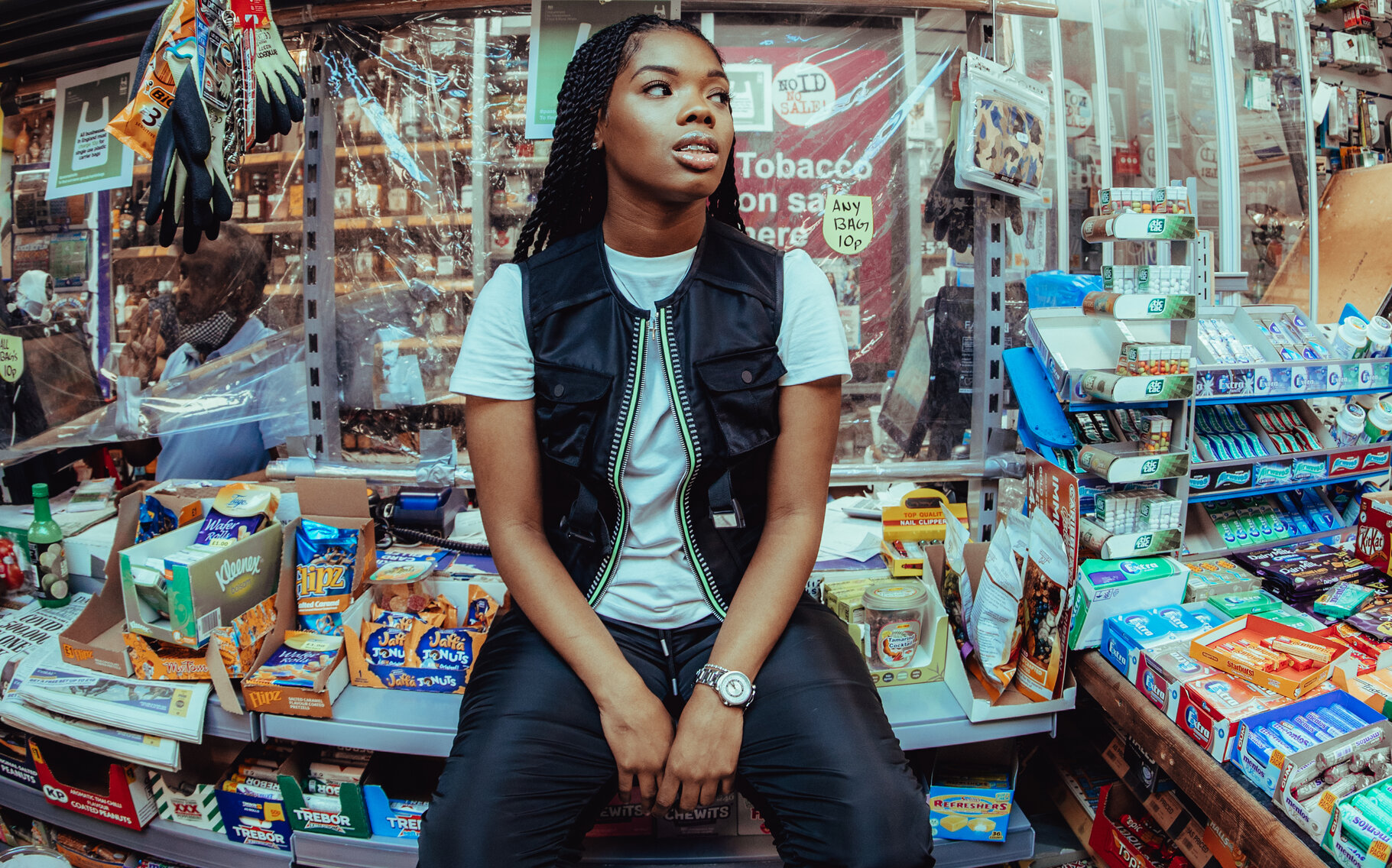
Back In Time for Brixton: what it’s like to star in a BBC Black and British show
Tiana-Maria Irwin
20 Nov 2016
This summer my mother, father, three siblings and I were chosen to relive the journey that our grandparents had taken before us – to leave their homes in various parts of the Caribbean to travel to the “motherland”, Great Britain, on a show called Back In Time For Brixton.
As a part of the Black and British season the BBC are running throughout this November (and also the Back In Time series that has previously aired on BBC Two), we spent just under three weeks filming in the heart of Brixton, in three different houses representing the journey through the years we took. The first house we lived in through the 1940s and 50’s, the second through the 50’s and 60’s and the third through the 70’s, 80’s and 90’s; experiencing different aspects of Caribbean immigrants’ lives through every period. It was a journey that went beyond my expectations.
We ended up on the show because my Dad, Weininger, saw an advert for it and applied on a whim. He said if we got it he thought it would be good for me and my siblings, (Breanne, 17, Shelasah, 15 and Romane, 12) to see how our elders lived. Although the show is set in Brixton because that’s where one of the first Caribbean communities in the UK was established, my Dad was born and brought up in Hackney and my Mum, Janice, was born and brought up in Dagenham – both by parents who had emigrated from the Caribbean. Minus my Dad, we’ve all lived in Dagenham our whole lives and the first day of filming was the first time I’d actually ever been to Brixton.
“I was ridiculously tired on the first day of filming because I had camped out all night to see Beyoncé”
Learning about the rich history of Brixton was both enlightening and frustrating. Even as the eldest sibling, at the beginning I didn’t know anything about many parts of black British history that I would consider integral to understanding the fabric of this country and why it is the way it is. For instance, the media narratives that were pushed about immigrants in the 1950s were chillingly similar (and in some cases exactly the same) as the ones we read about immigrants and refugees today.
Just as how the “rivers of blood” they warned us against at that time never came to fruition, so we must think about the 29 million Romanian immigrants Nigel Farage warned us against when they gained the same rights to work as other EU citizens in 2015 (only 220,00 showed up). Britain is a country made up of immigrants and while filming it became apparent to me that if the history of immigration in this country was taught and documented well enough we would not have such widespread xenophobia and racism today.
It was difficult to come to terms with the fact that, as bad as whatever we were experiencing felt, it was just a fraction of everything our grandparents and parents had to endure when they arrived in this country. My mum commented numerous times that there were many aspects of a Caribbean immigrant’s life that could not be replicated for us, such as the harsh British winter (as we were filming in summer), the vermin that would have definitely been in the building, the distinctive smell of paraffin (we couldn’t use the paraffin heater for safety reasons) and most importantly, the constant racism and discrimination that would have become a daily occurrence in their lives.
“If the history of immigration in this country was taught and documented well enough we would not have such widespread xenophobia and racism today”
Another part of filming that I felt was particularly poignant was when we watched the Miss World beauty pageant from 1963 in which Jamaican born Carole Joan Crawford won the title. The first thought that I had, and that the majority of my family members echoed, was how white she looked – especially when viewed on a black and white television. Although we duly noted the fact that a Jamaican woman managed to win a coveted title at a time when race relations between black and white people were extremely poor in Britain, what I picked up on was the fact that an extremely light-skinned woman was chosen to represent a country where most of the people are darker-skinned. It was saddening to see that colourism (the preference of lighter skin over dark) was as prevalent in the 1960s as it is now. It’s an issue that has been perpetuated for so long in society it is normalised and integrated into most cultures, specifically in the black community.

My family’s life is generally pretty hectic, so to be able to just sit down and talk to them and be together as a family was one of the most rewarding parts of this experience. One evening after we had finished filming for the day my Dad and I spoke about our family history until well into the early hours of the morning; something that we would not usually be able to do because our daily schedules meant that some days we wouldn’t see each other at all. Surprisingly, being able to interact without the interference of technology was refreshing, my siblings and I ended up spending hours playing board games or just chatting to each other rather than all sitting in separate rooms on our phones – although not being able to hear the news during the time when the UK was in political turmoil (Brexit) was slightly distressing.
“What I picked up on was the fact that an extremely light-skinned woman was chosen to represent a country where most of the people are darker-skinned”
Meeting prominent contributors to black culture in this country was incredible as well. Simply being in the presence of the likes of Rudolph Walker, Jazzie B and Janet Kay was surreal. Janet is a woman that I have grown up listening to, whether it be on a Saturday morning while my mum is cooking breakfast and listening to Lovers Rock, or at a family party where all the adults are crooning the top notes of ‘Silly Games’. To be able to actually speak to her and ask her about her experiences with the British media and being black in general was fascinating. The nicest thing about meeting them was seeing that the Caribbean black experience is a shared one, and that there are certain things that we have all heard or done at some point, like gathering everybody around the TV when a black person comes on or frequently hearing the well-known Caribbean phrase: “if you don’t hear, you must feel”.
Being in Brixton made me realise there was a part of myself that I was missing. The culture reflected me, the people looked like me, the smells and sounds around me were ones that I was familiar with, and the environment was one I understood. Having lived in and attended school in a predominantly white area for the last seven years and facing various microaggressions from peers and adults alike, it was emotionally overwhelming finally being in a place where the phrase “home away from home” could be unreservedly applied.
I hope the Black and British season will begin a new dialogue about the contributions of black British people to this country. Since our history is not widely taught in schools it is important that we have some sort of representation within the media today. My real hope is that this season does not end up as a tokenistic, one-off and the increased representation of black Britons continues into regular programming of the BBC. I am truly blessed and proud to have been part of such an important documentation of the history of my grandparents and parents.
Back in Time for Brixton airs at 9pm tomorrow (Monday 21 November) on BBC 2










